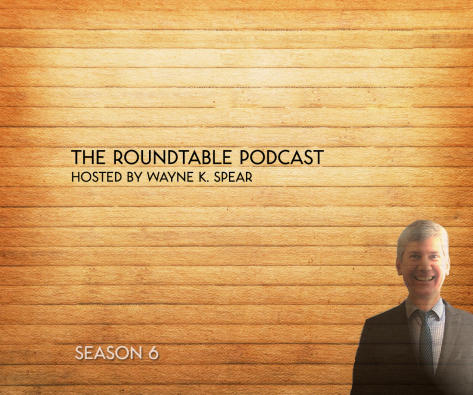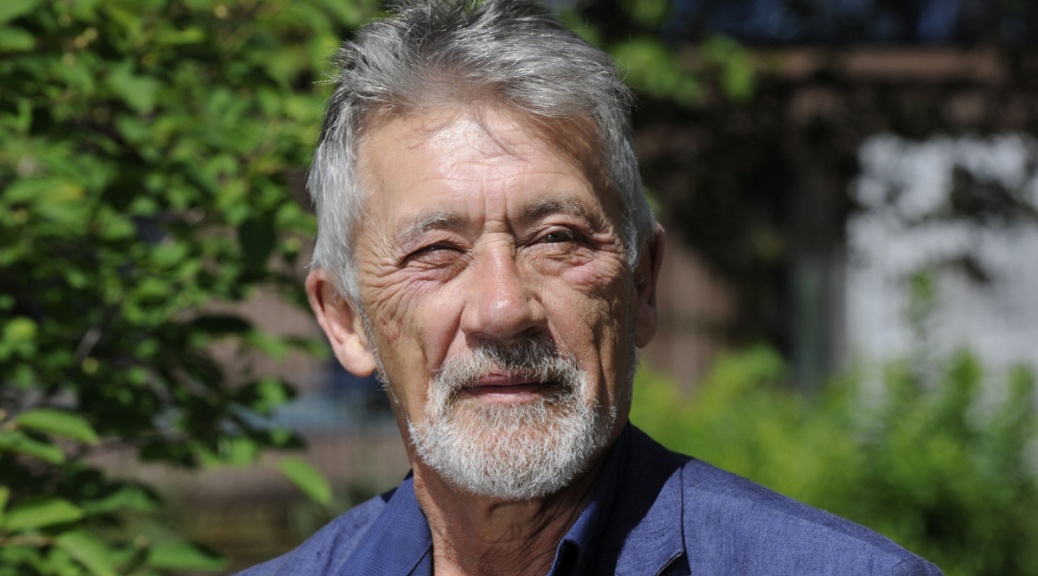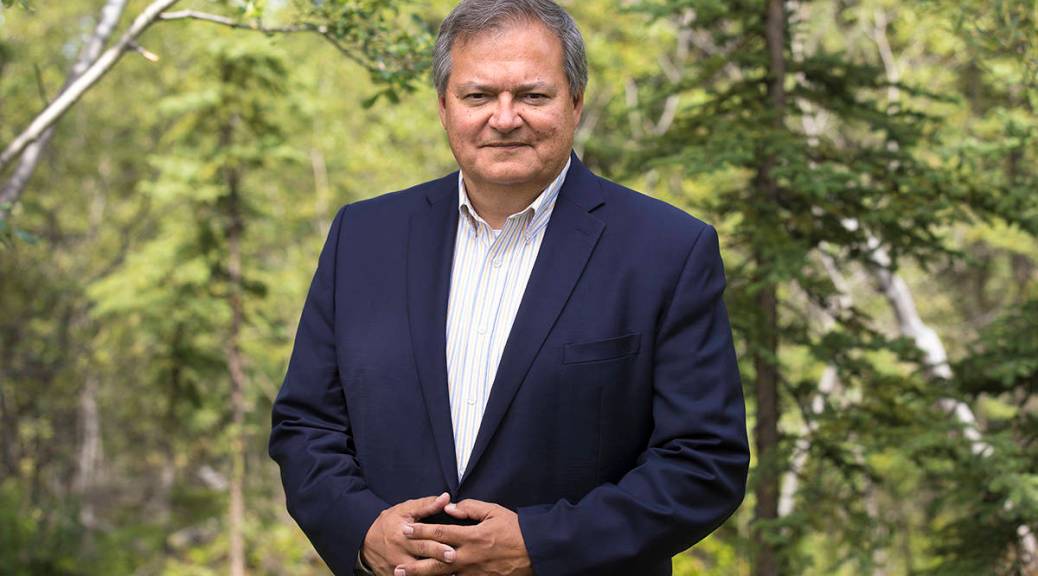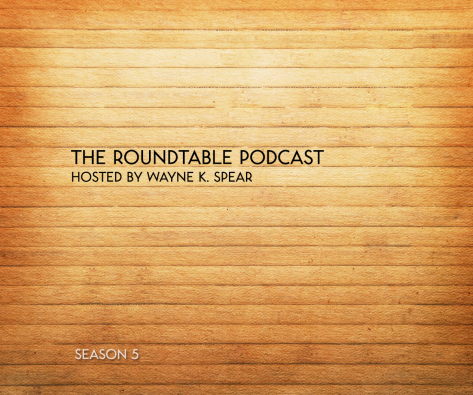I am returned, in the time of Spring
✎ Wayne K. Spear | April 5, 2018 · Fiction

MY NAME IS KALASHNIKOV, it is true. And it is true I have come again, after a long absence, and after a kind of silence, in the season of the resurrection. Yes, even at the time of the resurrection of our Lord and Savior.
When the thought of a return arises, naturally the season of resurrections presents itself. Naturally, one chooses an auspicious moment, the moment of ripeness, the ripe moment. Or perhaps it is the moment when the thought of ripening occurs, the moment when Spring is at hand, that one thinks of a return. In any case, I am returned, in the time of Spring and in the time of rebirth and in the time of resurrection and ripening.
It happened as follows. I say that I thought of it, or that one thinks of it, by which I mean to say the returning and the resurrecting. But that is not exactly the case. I, Kalashnikov, was, for a time. Yes, most definitely, I was. In the flesh, in the word, in every sense of the word was, I was. For a time, of course. And then I was not, neither in the flesh nor in the word. The wasness yielded to nonwasness, which I shall call the silence, or the not thinking. Yes, that is it. The others spoke of Ivans and Dmitris and Yvors, but not of Kalashnikov. Because of course there was nothing to speak of, nor nothing of which to think. I was, and I was not, for a time. How could I have thought of a second coming, under such circumstances? Under such non-circumstances!
You may ask how long I was away, but I am unable to answer. It may have been an hour, or perhaps a year, perhaps also an eternity. It was probably not an eternity. Nor, in all statistical likelihood, which is the likelihood that matters most, an hour. To disappear, into the notwas unbeing silent nonexistence of oblivion, for one hour, is frankly impractical. It shows an utter disrespect for the thing. It is, in a word, impolite. One ought to undertake annihilation with more vinegar than that, if one is at all serious. To pass into this Beyond, and to return an hour later, is an affront to all that is holy. Therefore I am of the view that it was not an hour.
To have been gone an eternity seems unlikely. To begin, eternity is long. Imagine a long time, and multiply this long time by an infinity of long times, and then double this amount an infinite amount of doubles. I will wait. This may take some time, but no matter. I will be here when you are done. And when you are done, stack the amount on top of an equal amount, and double this infinitely, on an infinite redoubling of infinite redoublings. And the result will be nothing as compared to eternity!
It follows that I was away more than an hour and less than an eternity. And it follows that I was likely away at least a month, but probably no more than a year, for after a year one longs to return. It is the nature both of longing and of returning. It doubtless has something to do with the seasons, with the changing of weather, with the coming of Spring. After a time, one hankers for the return. I am speaking of hankering, of the nature of the hanker, of hankerings, of Hankerology. It is a well-documented thing, a matter of near certainty, this business of the hanker.
So many have departed. For example, I too once worked for the President. Once he and I were close, not as objects are close but rather as ideas are close, such as the idea of coming and the idea of hankering and the idea of Spring. Once, the President placed great faith in me, close as we were—in a conceptual sense, please note. The President trusted my words, my counsel, my notions, no matter how delusional or no matter how much under the influence of my medications. “I have full confidence in Kalashnikov,” he said. “Kalashnikov is not about to disappear into the silent unbeing,” he said. “It is fake news,” he said. “The rotten bastard, Kalashnikov, who I love.”
Imagine my surprise when I returned, in the time of the resurrection. It was not my idea, nor my will. I did not think of it, beyond all thought as I was, or was not, in the notwasness. It was not against my will, but also it was not my will. Will had nothing to do with it. Say nothing of will, it is a matter of irrelevance. As I said, I fell into a kind of silence. “A kind?” you say. “Well, what kinds of silence are there?” First, the not-speaking silence, the negative silence of negation. But there is also the silence of things that are not negation but are nonetheless silent, such as prayer. Or a silent fart, often the most deadly of farts, but not in this case. That was the kind of silence that I was, or rather was not: a prayer-fart, without sound and without smell. Not being able to speak of it, I did not speak. It was and yet was not. That gets to the heart of it, I think.
Yes, the heart, that bloody organ to which we advert in moments like this, when the invocation of an organ is requisite. It could well have been another organ. Goodness knows that the heart is among the least favorite of my organs, like the brain, very near the bottom of the list. If I am pressed to come up with an organ, then, yes, I may blurt out BRAIN! despite myself. Or I may scream FOOT, which is not an organ but let us not dwell on this. I am saying If pressed, there is a chance such words will issue from my orifice. My preference would be to return at the time of the erection, with a giant priapus. I am speaking of steely resolve, of standing tall and ready: I, at your cervix, ready to take matters into my own hand, if I must. Which, most days, I must. Ah the blessed days when I am taken by another hand, a stranger hand, in the alley or whilst riding the subway! I come with no hidden pudenda, cocksure, eye on the ball, a penetrating question on the mind. I take no responsibility. It is simply the time when one does such things.
The time, I mean, of seed and sun. The time of pilgrimages and of rebirth, of birds and flowers, of regeneration. In a word, of fucking. Yes, that is the word, the precise word for it. The dirty dirty life-force unleashed upon God’s blessed creation. He gazes down upon the fucking dogs and the fucking cats and the fucking ants and the fucking capybaras. Presumably, too, he looks down upon I, Kalashnikov, almost hidden from sight in the boiler room, furiously tugging at my engorged member, to no use, to no use. In my own way, I get into the Spirit of the thing, with help from the videos. I see roughly how it is done. Spittle appears to help. I shout OHMYGOD at what seems to be the advisable juncture. I search the boiler room for a proper hole, this business of holes apparently critical to the success of the enterprise. It is the Life Principle that compels me. I am at one with the life-force, as I make sweet love to the furnace.
As I said, I mean only to get into the spirit of the season, to not be apart or left out or otherwise non-participatory. Everywhere life returns to the Earth; everywhere there is romance and love and intercourse. And so I throw myself into it, with abandon, with all that I have. I have crossed the Lubicon, shouting, “Alea ejecta est!” It is my second coming, already today. I, Kalashnikov, returned after a kind of silence, from the non-being nothing of eternal notwasness.



















 Trump is no good for democracy and America but American voters (on a diet of reality television) aren’t much good for these either
Trump is no good for democracy and America but American voters (on a diet of reality television) aren’t much good for these either




